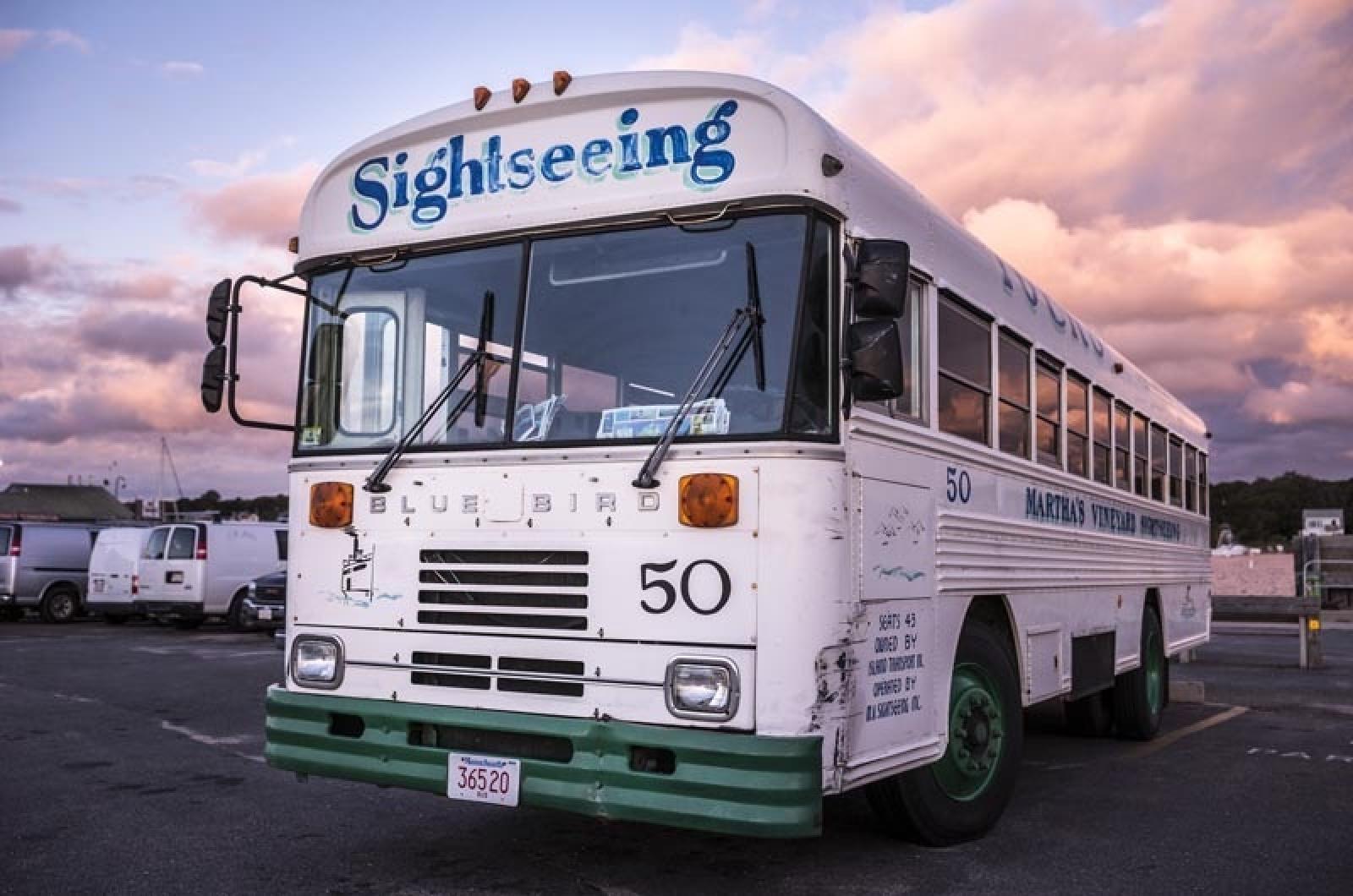State legislators and regional tourism directors are pushing back against proposed budget cuts for the state’s tourism office, which they said could hurt the Vineyard’s cornerstone tourism industry.
In the first budget recommendation of his tenure, Gov. Charlie Baker is proposing about $6.1 million for the Massachusetts Office of Travel and Tourism, down from about $18.2 million last year.
The tourism office also administers funding for 16 regional tourism councils, which would be competing for $500,000, compared to $7.5 million last year. The offices are responsible for destination marketing in the state.
Martha’s Vineyard Chamber of Commerce director Nancy Gardella said the cuts would likely put a damper on the Island economy in the shoulder seasons.
“That will mean staff changes, but it will also mean that we will not be in a position to do the kind of aggressive and effective marketing that we did,” Ms. Gardella said.
The chamber has already eliminated one full-time position this year, following a 33 per cent funding cut in December. The chamber’s original funding for fiscal year 2015 was $289,000.
Ms. Gardella, who is also director of the Vineyard regional tourism council, was in Boston this week encouraging legislators to amend the budget. The budget as presented could leave the Vineyard with as little as $30,000 for destination marketing, much less than in recent years.
Most of the state money for tourism ends up in Boston, the Cape and the Berkshires. But a strong marketing plan helps keep the Vineyard competitive in the process. Since 2006, the Vineyard’s share of funding has ranged from about $72,000 to about $336,000.
State legislators will have a chance to submit amendments to the budget later this spring, prior to the start of the fiscal year on July 1. State Rep. Tim Madden and state Sen. Dan Wolf, who represent the Cape and Islands, will be among those advocating for an increased tourism budget.
Mr. Madden said Tuesday that he believed the cuts were an error in judgment on Mr. Baker’s part. “I don’t think he has had an opportunity to understand the implications it would have, and the significance of what those funds do as far as creating money for the commonwealth,” Mr. Madden said.
Elysse Magnotto-Cleary, Mr. Wolf’s chief of staff, said the proposed cuts “would have an enormous impact on the Cape and Islands’ ability to continue to attract visitors.”
Tourism is the third largest economy in the state, supporting about 130,000 jobs, according to the state tourism office. Tourism to the Vineyard has increased during spring and fall shoulder seasons, due largely to aggressive promotion, Ms. Gardella said. She added that destination marketing benefits the entire Island economy, since visitors typically shop and use a variety of services when they are here.
The Baker administration “may not be aware of what a cash cow tourism is in the state,” she said, adding that an investment of less than $20 million in 2013 saw a return of more than $18.5 billion statewide.
Ms. Gardella and other regional tourism directors will continue to push for an amended budget this spring, she said. “We need to advertise, and educate the new administration on how important that is,” she said.
In a statement accompanying the budget proposal, Mr. Baker and lieutenant governor Karyn Polito noted that state spending last year continued to outpace tax revenue, even after more than $1 billion in budget reductions. “This is simply an unsustainable path for Massachusetts - we must live within our means,” the statement said, adding that the budget proposal aims to create better communities, schools, and jobs throughout the state.
Elizabeth Guyton, Mr. Baker’s press secretary, told the Gazette that former Gov. Deval Patrick’s recommended budget last year included only $2 million for the regional tourism councils (that amount was raised in the final budget) and that the 71 earmarks in that line item – the most of any item in last year’s budget – were eliminated in Gov. Baker’s proposal.
“Through careful consideration the governor fixed the inherited $1.8 billion deficit without raising taxes or fees, while investing in education and transportation to foster economic growth,” she said.
Funding increases would focus on local aid, transportation, and human service programs, with every district in the state seeing an increase in education funding, according to the administration.
Mr. Madden said it is common for a budget recommendation to include cuts to the tourism programs, and in the past legislators have succeeded in recovering those funds in the final budget.
But the proposed cuts this year are more drastic, he added. “There may be a little bit of a learning curve. With that being said, we will make the case that those accounts are important because they actually are bringing in revenue,” Mr. Madden said.
Ms. Gardella shared that perspective.
“Tourism is short spending for long-term gain, and it makes good sense,” she said. “It’s not a handout, it’s an investment.”




Comments (3)
Comments
Comment policy »